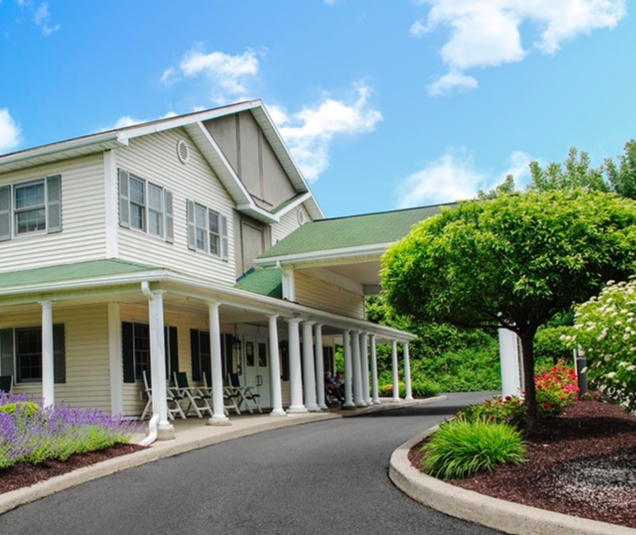As our loved ones age, recognizing the signs that they may need additional support and care is crucial for making informed decisions. 10 signs it’s time for assisted living include:
- Difficulty performing daily activities
- Declining health
- Poor personal hygiene
- Social isolation
- Unsafe living conditions
- Cognitive decline
- Unexplained weight loss
- Medication mismanagement
- Financial mismanagement
- Caregiver stress
In this blog, we’ll discuss how to decide whether it’s time for your loved one to consider the transition to assisted living. This will give both you and your loved one a better understanding of the considerations involved.
What Is Assisted Living?
Assisted living is a type of residential care that combines housing, support services, and healthcare as needed. These communities help older adults maintain their independence while providing a safety net of assistance with daily activities. Assisted living communities offer various services, including support for activities of daily living:
- Meals
- Medication management
- Assistance with bathing
- Assistance with dressing and grooming
- Assistance with mobility
- Transportation
10 Signs It’s Time for Assisted Living
It can be difficult to know when a loved one might benefit from assisted living—especially when the possibility can sometimes trigger feelings of guilt. Here are 10 signs that indicate that it might be time to explore this care option.
- Difficulty Performing Daily Activities
One of the first signs that it might be time for assisted living is when your loved one begins to struggle with the activities of daily living (ADLs). These activities include cooking meals, cleaning, bathing, and dressing. When these tasks become challenging, it’s a clear signal that a person requires some additional support.
For instance, if you notice that your loved one is frequently skipping meals or that their house is no longer so clean, then your loved one might benefit from the structured and maintenance-free environment of an assisted living community.
- Declining Health

Chronic health conditions can worsen over time, making it harder for older adults to manage on their own. Frequent hospital visits or repeated falls are strong indicators that more comprehensive care is required. Assisted living can provide medical oversight and support so that health issues are promptly addressed and managed effectively.
- Poor Hygiene
A noticeable decline in personal hygiene can manifest as infrequent bathing, wearing dirty clothes, or neglecting dental care. These changes often occur because maintaining personal hygiene becomes too physically demanding or as a result of cognitive decline. Assisted living communities offer help with these tasks.
- Social Isolation
Loneliness and social isolation can severely impact mental and physical health. If your loved one spends a lot of time alone, has lost interest in social activities, or has withdrawn from family and friends, it might be time to consider assisted living. These communities provide ample opportunities for social interaction, helping to combat loneliness and enhance overall happiness.
- Unsafe Living Conditions
Home safety is paramount. Unsafe conditions, such as cluttered walkways, expired food in the fridge, or a lack of home maintenance, can indicate that your loved one is struggling to keep up with household responsibilities. Assisted living communities are designed with safety in mind, offering a secure environment that minimizes the risk of accidents and provides prompt assistance when needed.
- Cognitive Decline
Cognitive decline is a natural part of aging but can be concerning when it interferes with daily life. Signs can include memory loss, confusion, and difficulty concentrating. Assisted living communities provide a safe environment that creates a positive experience while supporting memory.
- Unexplained Weight Loss
Significant weight loss can signal that your loved one is not eating well, perhaps due to difficulty cooking, poor appetite, or medical issues that can affect their health. Assisted living communities provide balanced, nutritious meals and monitor individual dietary needs.
- Medication Mismanagement
Managing multiple medications and prescription schedules can be overwhelming and confusing. An inability to manage medications properly can include forgetting to take medication, taking it more than once, mixing up medications, or ignoring prescribed dosage instructions. Assisted living communities provide medication management by making sure prescribed medications are taken at the right time in the correct dosage.
- Financial Mismanagement
Difficulty managing finances can be another sign, such as unpaid bills, unusual purchases, or donations to unfamiliar organizations. These signs often indicate memory problems or an inability to keep up with the complexities of financial management.
- Increased Caregiver Stress
Caring for an aging parent or relative can be physically and emotionally draining. Signs of feeling overwhelmed, caregiver burnout, or being unable to provide the level of care that your loved one needs might indicate that it’s time to consider assisted living.
The Decision-Making Process
Deciding to transition a loved one to assisted living can be daunting. However, by involving your loved one in the conversation, you can respect their wishes and concerns.
One of the most common fears about moving to assisted living is the perceived loss of independence. However, assisted living is designed to enhance independence by providing just the level of support that your loved one needs. Consider discussing these benefits with your loved one and visit an assisted living community together.
Supporting a Fulfilling Life
Recognizing the signs that it might be time for assisted living is the first step toward your loved one’s well-being and peace of mind. By understanding these indicators and taking proactive steps, you can help them transition smoothly and enjoy a fulfilling, supported lifestyle.
For more personalized guidance and to explore options tailored to a loved one’s needs, contact an advisor at Peregrine Senior Living at Shaker to support you every step of the way.










